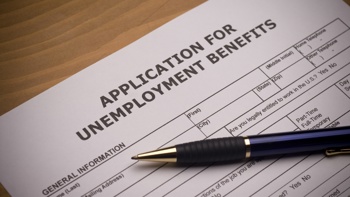LISTEN TO SUE CHETWIN TALK WITH LARRY WILLIAMS ABOVE
A sunscreen that fell well below its stated protection when tested by Consumer NZ is being pulled off the production line.
Coola Classic Body Sunscreen Plumeria SPF30 was found to only give low protection of SPF6 when tested, despite claiming high protection of SPF30.
It was one of six sunscreens out of 10 tested found to have failed to meet their SPF label claims.
Chris Birchby, CEO and founder of American-based Coola, said an independent third-party review of the formula and data would be conducted.
"We are taking a close look at Consumer test outcomes to determine what external or internal conditions may have impacted the results, including an independent third-party review of the formula and data," Birchby said.
Birchby said the product had been phased out in most markets, however, its replacement wouldn't be available in New Zealand until Spring next year.
"Our new product will be available in NZ in Spring 2019."
Sue Chetwin, chief executive of Consumer NZ, said four of the companies, including Coola, provided lab reports showing their products had been tested and met their label claims.
However, two reports were dated from 2015 and Coola's report was from 2013.
"There's no requirement for sunscreen manufacturers to regularly test. But that's what they should be doing to ensure their products continue to provide the protection claimed," Chetwin said.
She told Larry Williams that one of the issues is that it is not mandatory for companies to achieve a sunscreen code, which she wants to change.
“They might still be giving you good protection, but not the protection they claim.”
She says that it’s a pretty sad situation for New Zealand consumers.
“In Australia, it’s a therapeutic good and it’s mandatory for all sunscreens to reach a standard, and that’s all we’re asking for.”
The Ministry of Health says sunscreen's in a limbo of regulation, where it may, or may not, be regulated.
It's currently not part of a bill going through parliament which would regulate therapeutic products.
Cancer Society chief executive Mike Kernaghan says it's a no-brainer to have a proper standard for sunscreen.
"We have the highest rate of melanoma in the world, yet we don't regulate a really important factor in protecting ourselves from the danger of UV rays."
Another product that didn't live up to its label was Neutrogena's Ultra Sheer Face & Body Dry-Touch Sunscreen Lotion SPF50.
Testing revealed the sunscreen had an SPF of 42.
A spokesperson for Johnson & Johnson New Zealand, whose products include Neutrogena, said they confidently stand by the label claim of SPF50 on its Ultra Sheer Face & Body Dry-Touch Sunscreen Lotion.
"We stand confidently by the label claim of SPF50 on the Neutrogena Ultra Sheer Face & Body Dry-Touch Sunscreen Lotion SPF50. This claim is substantiated by independent test results conducted on this product formulation by a highly qualified, experienced and credible research laboratory that meets our rigorous standards.
"Every product in our Neutrogena sunscreen range sold in New Zealand has been tested against and proven to comply with the requirements of the Australian and New Zealand sunscreen standard AS/NZS 2604:2012.
"At Johnson & Johnson New Zealand, our priority is to deliver safe, effective, high-quality products to our consumers, and we take this responsibility very seriously."
Bondi Sands, who's Coconut Beach Sunscreen Lotion SPF50+ was found to have a SPF of only 38, were unable to provide immediate comment.
Sunsense, who's Sensitive Invisible SPF50+ was found to have an SPF of 16, has also been approached for comment.
For more information on the methodology, see the full Consumer NZ report.
Take your Radio, Podcasts and Music with you









